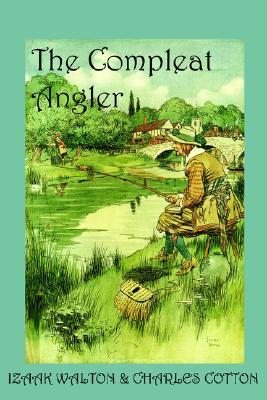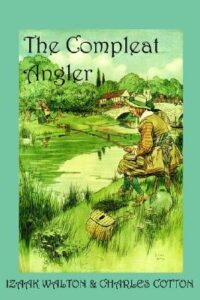Chapter VII — The Compleat Angler
byChapter VII – The Compleat Angler introduces a fascinating exploration of the salmon, a fish revered not only for its strength but for the remarkable patterns it follows through life. Known to inhabit rivers far enough from the sea to avoid the influence of salt, the salmon embodies an incredible sense of timing and place. Each year, as summer matures into late August, these fish instinctively begin their journey upstream. With careful precision, female salmon create small nests in gravel beds, where they lay and cover their eggs before departing. Left behind, these eggs rest through the winter months until spring warmth awakens them into life. Walton portrays this act not as mere instinct, but as part of nature’s larger, awe-inspiring rhythm.
Once spawning is complete, the salmon’s cycle takes another dramatic turn as they head back toward the sea. Yet for those unable to return, due to dams or misdirection, their fate is grim—sickness takes hold, and death follows soon after. Walton treats this return journey with reverence, admiring their tenacity to overcome every barrier. Stories abound of salmon leaping extraordinary heights to scale weirs and waterfalls, driven by a deep, unseen force. He likens this journey to that of noble travelers returning to their ancestral homes. This elegant metaphor connects the salmon’s instinct to something both majestic and deeply human.
Further reflections reveal Walton’s fascination with the salmon’s memory and navigation. He suggests these creatures may return to the exact streams where they were born, guided by an internal compass not unlike that of pigeons or migratory birds. Supporting this idea are anecdotes of marked salmon returning after a season, larger and more resilient. Their growth, accelerated by the abundance of ocean life, is presented as both miraculous and measurable. This connection between natural observation and speculative theory captures the wonder that fishing stirs in patient anglers. Such insight goes beyond utility—it cultivates respect for creatures often pursued only for sport.
As the topic turns to technique, Walton offers practical wisdom laced with curiosity. Worms remain the favored bait, but he experiments with adding fragrances or oils, believing the scent may further entice the salmon. He notes this approach is not yet proven but shows promise based on early trials. There’s a charm in his openness to discovery, urging fellow anglers to remain students of nature rather than masters of it. These subtle refinements in bait preparation reflect the balance of art and science in angling. Success is never guaranteed, and part of the joy is found in the attempt.
Salmon fishing, unlike other pursuits, calls for a blend of patience, timing, and respect for the fish’s strength. Walton shares how a seasoned angler learns to read the river—its depth, current, and mood—before choosing a place to cast. Quietude becomes a necessity, not just a virtue. Every motion, every ripple in the water matters when pursuing a fish known for its agility and suspicion. This awareness ties into Walton’s broader philosophy of angling as a meditative act. Beyond mere capture, it’s about harmony with the world beneath the surface.
Closing the chapter, Walton returns to a more reflective tone. He speaks of the salmon not just as a fish but as a symbol—of renewal, of journey, of nature’s unspoken laws. The respect he holds is unmistakable. In admiring its strength, its cycles, and even its vulnerabilities, he invites readers to look beyond the line and hook. The act of fishing, when paired with reverence and care, becomes a form of communion with the wild. For Walton, the river is a place of learning, and the salmon its most honorable teacher.
Through this chapter, the salmon is elevated from a mere target to a creature worthy of admiration and wonder. The reader walks away not only informed but inspired, ready to engage with the natural world in a more thoughtful, appreciative manner. Walton’s message is clear: angling is not only about skill—it’s about deepening our connection to the rhythms of life that swim quietly beneath the surface.


